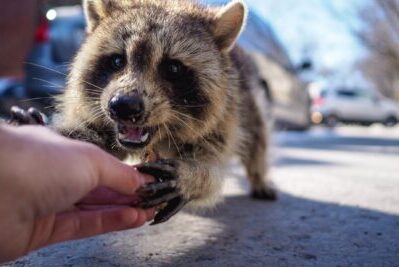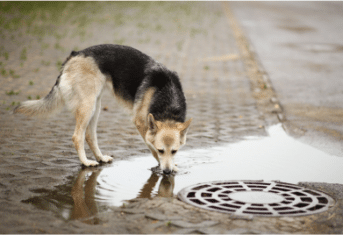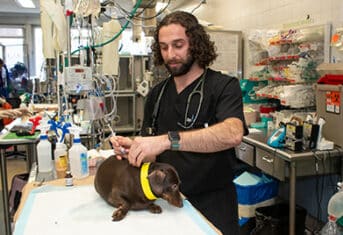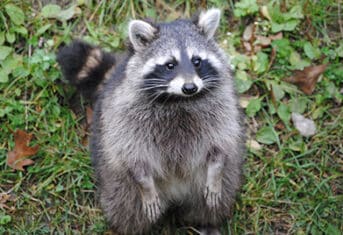Rabies Alert!

Rabies Alert!
I received a veterinary alert from the New York City Department of Health and Mental Hygiene last week. In the middle of a pandemic, you would think the topic of the alert would be SARS-CoV-2 in animals. It was not. The alert focused on rabid animals in New York City.
Animals with Rabies in NYC
The veterinary alert highlighted two species with rabies: racoons and cats. Some of my non-medical colleagues at the Animal Medical Center were surprised cats beat out dogs on this list. But stray cats are extremely susceptible to rabies, and cats have been the NYC domestic animal poster child for rabies since 1992 when data collection on rabies started. Recently, a cat in Astoria was found to be rabid when an astute veterinarian recognized typical neurologic signs of rabies in a stray cat. No rabid dogs have been reported in NYC since 1954.
Racoons, those adorable masked bandits, live in parks across the city. Contact between racoons and stray cats results in rabies spillover from wildlife into domestic animals. This year, for the first time since rabies cases have been tracked in NYC, raccoons in each of the five boroughs have tested positive for rabies. Over the past ten years, small epizootics (the animal version of an epidemic) of racoon rabies have occurred in upper Manhattan and Central Park, but most cases come from Staten Island and the Bronx. Because of budget cuts, oral raccoon rabies vaccination no longer occurs in NYC and the lack of vaccination is a contributor to the uptick in racoon rabies.
Protecting the Family from Rabies
Since the onset of the coronavirus pandemic, we’ve all been concerned about protecting our families against the SARS-CoV-2 virus. However, protecting your family against rabies is important too and, like the coronavirus, includes every member of the family, both two-legged and four-legged. New York City requires all dogs and cats to be vaccinated against rabies by 4 months of age. Make sure your animal is protected by maintaining up-to-date vaccinations, and following these rabies precautions:
- Avoid situations where rabies is likely to occur.
- Don’t feed the wildlife in your yard.
- Feed pets indoors so their food does not attract wildlife that might harbor rabies.
- Avoid contact with wildlife and stray cats and dogs.
- Hunt down your pet’s rabies certificate and see if it’s time for a booster.
- If your pet is in contact with a racoon, skunk, bat or a possibly rabid animal, contact your veterinarian immediately.
What a crazy week it was in New York City. A pandemic, Hurricane Isaias and rabid animals. In some ways it reminds me of the biblical plagues of Egypt. Are locusts next?

































